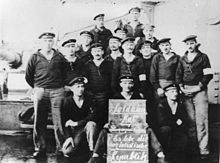In 2016, much of the credit for the prevention of war can rightly be claimed by people labeled 'right-wing', 'far right' or 'extreme right'. Examples include Marine Le Pen of France, Nigel Farage of Britain and United States' President-elect Donald Trump.
Paradoxically, one hundred years ago, during the first inter-imperialist slaughter of 1914-1918, it was the Communist 'far left' that opposed war.
Whilst Australian histories tend to give credit to Australian soldiers led by General John Monash for defeating Germany on the Western Front in November 1918, the capitulation of Germany may, in fact, have been the result of the uprisings of 9 November 1918 in Germany led by the anti-war Spartakusbund of Rosa Luxemburg and Karl Liebknecht. The Spartakusbund was later to become the Kommunistische Partei Deutschlands (KPD) or Communist Party of Germany.
The uprising was preceded on 3 November by a mutiny of German sailors, who refused to sail to fight a suicidal last battle against the British Royal Navy.
Sadly, the uprising in Berlin was crushed by right-wing Freikorps mercenaries and Rosa Luxemburg and Karl Liebknecht were executed by them on 1 June 1919.
A number of times in subsequent years, the German Communists came close to success. The last occasion was in September 1923 when German Reichswehr troops invaded Saxony and Thuringia to crush the strong communist movements in those states and to overthrow the elected left Social Democrat governments.
Had the German Communists succeeded in 1923, Adolf Hitler would have become a small footnote in history and the subsequent war in which 60 million were to die would have been prevented.


Add comment